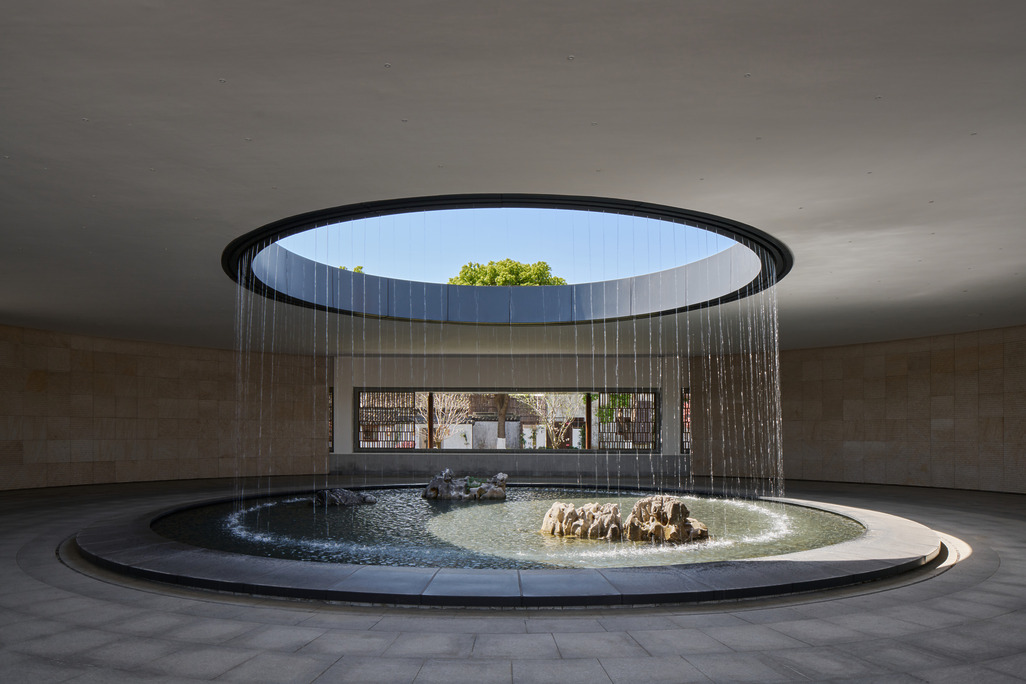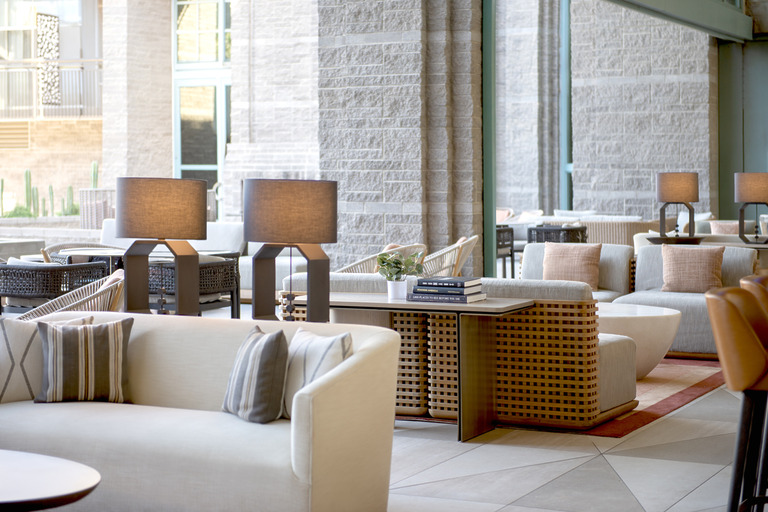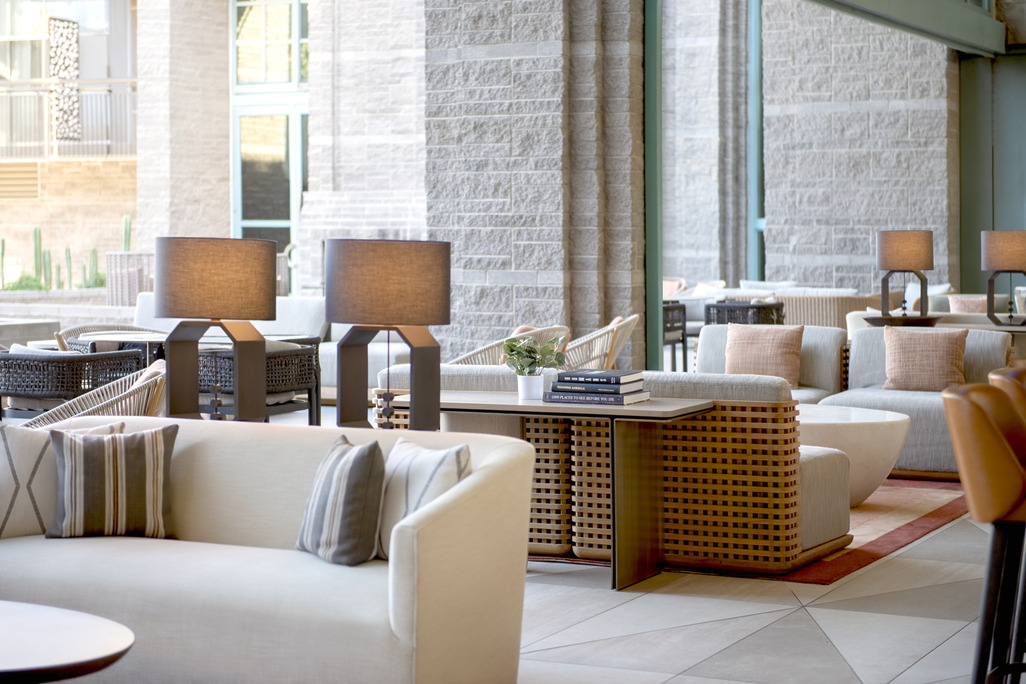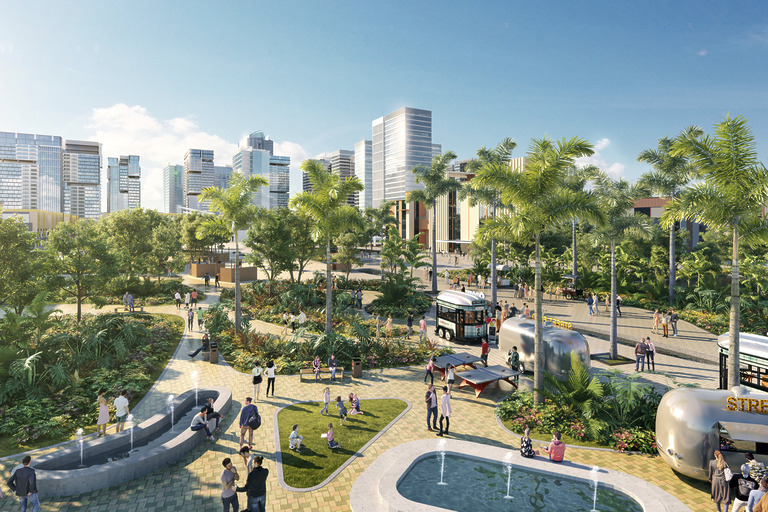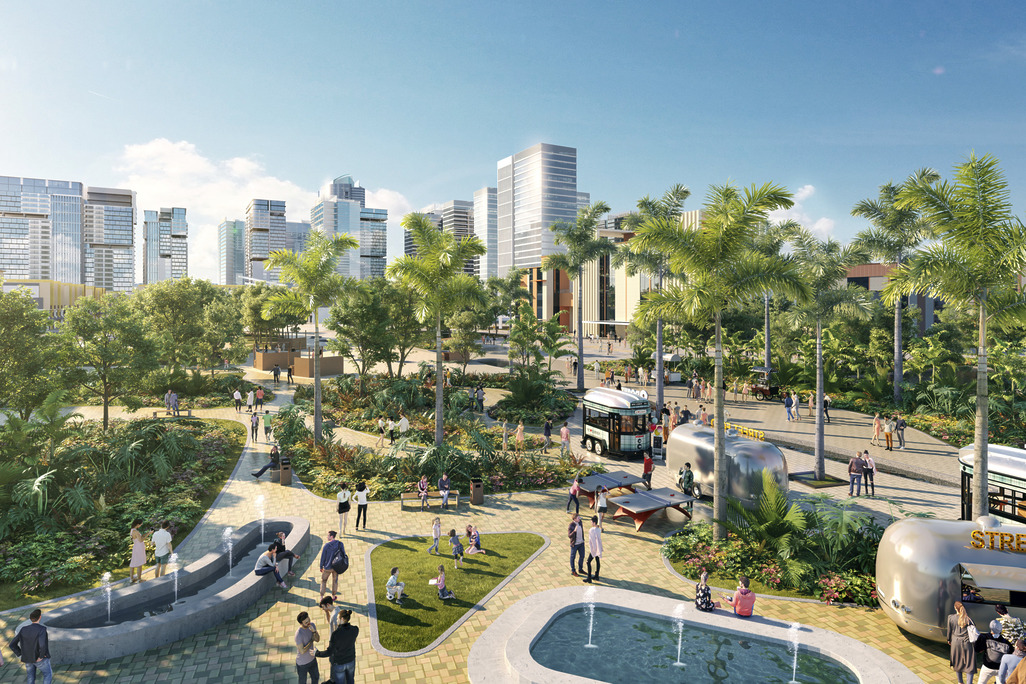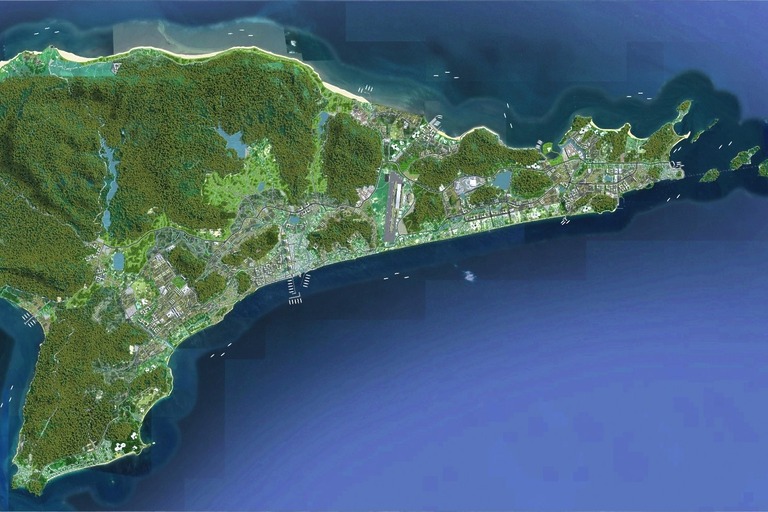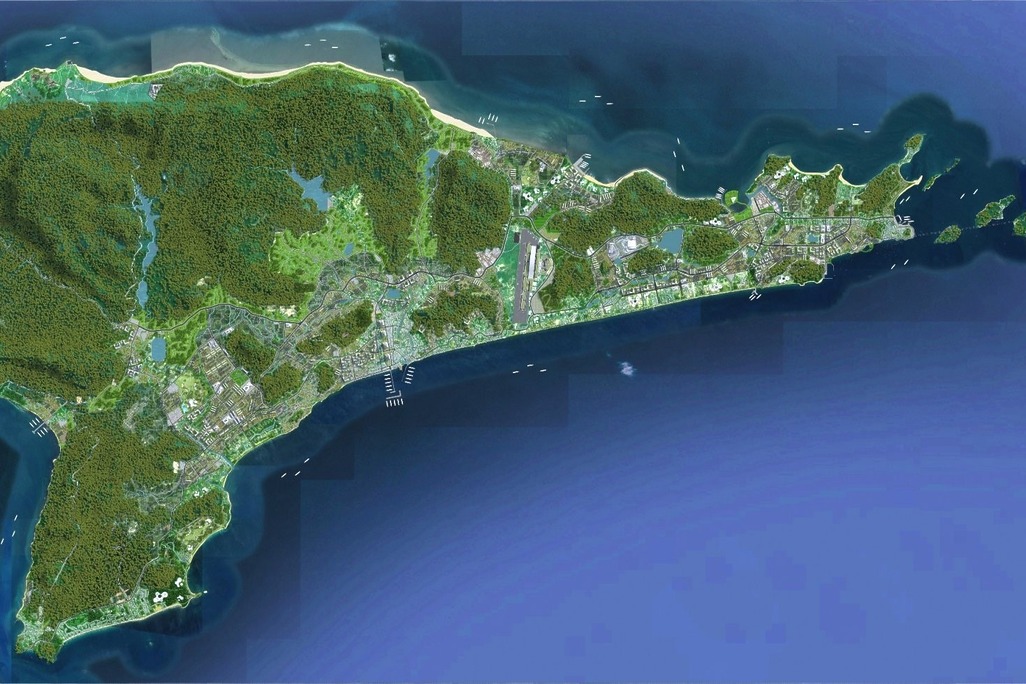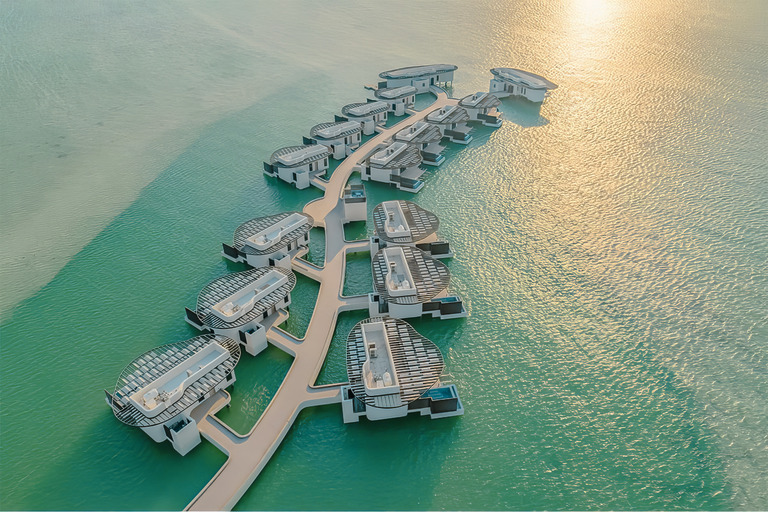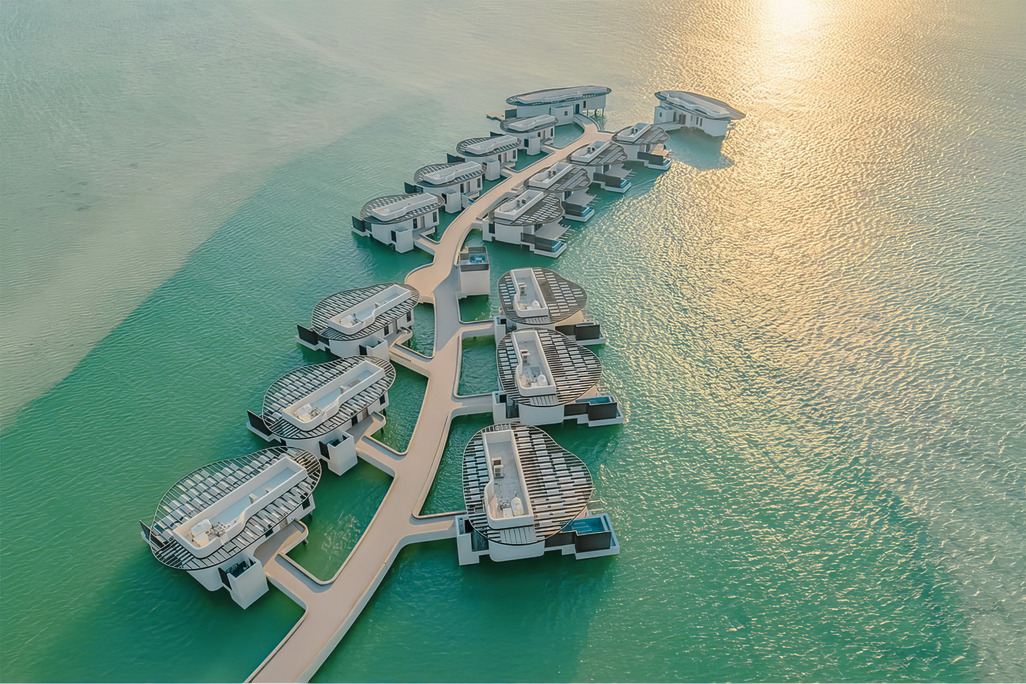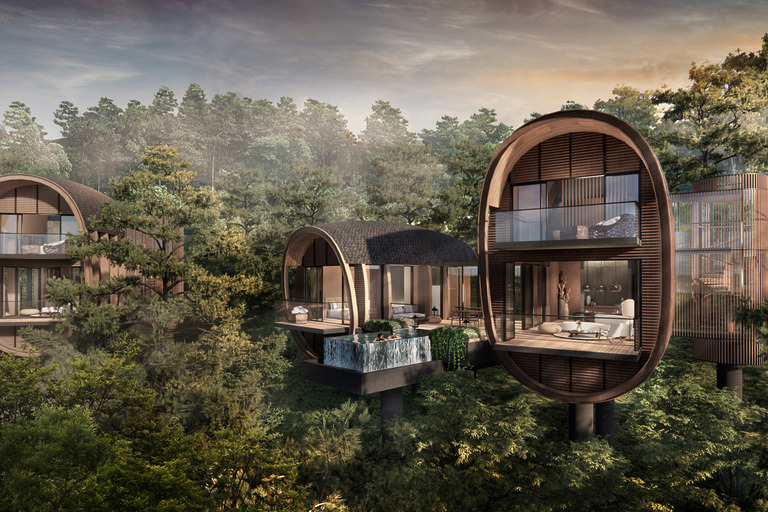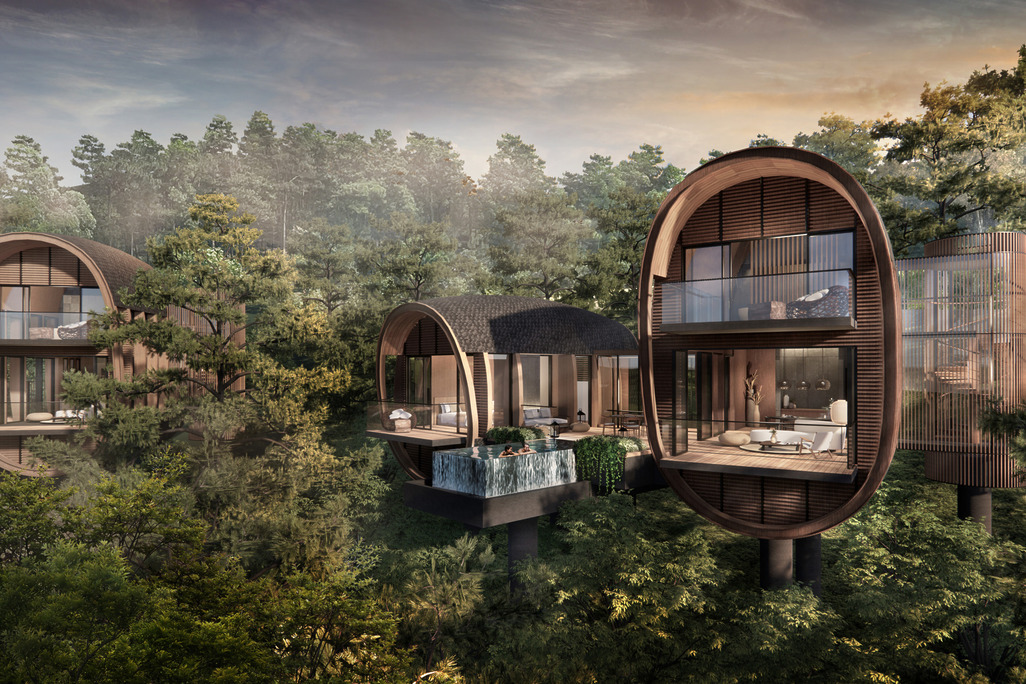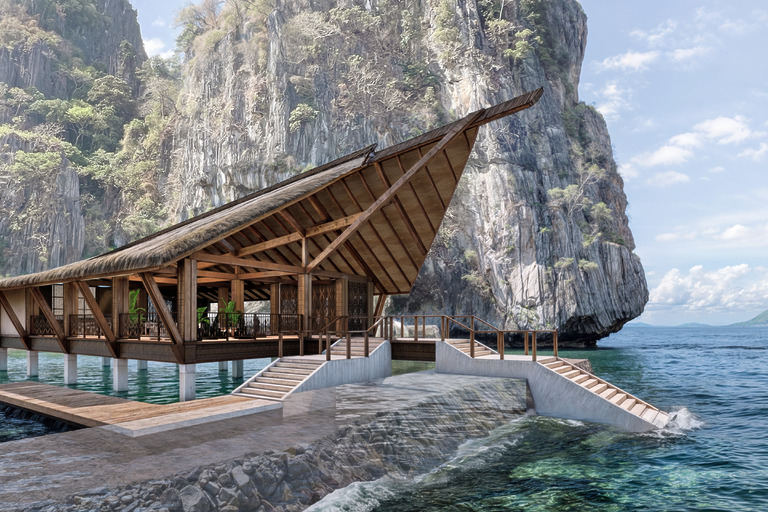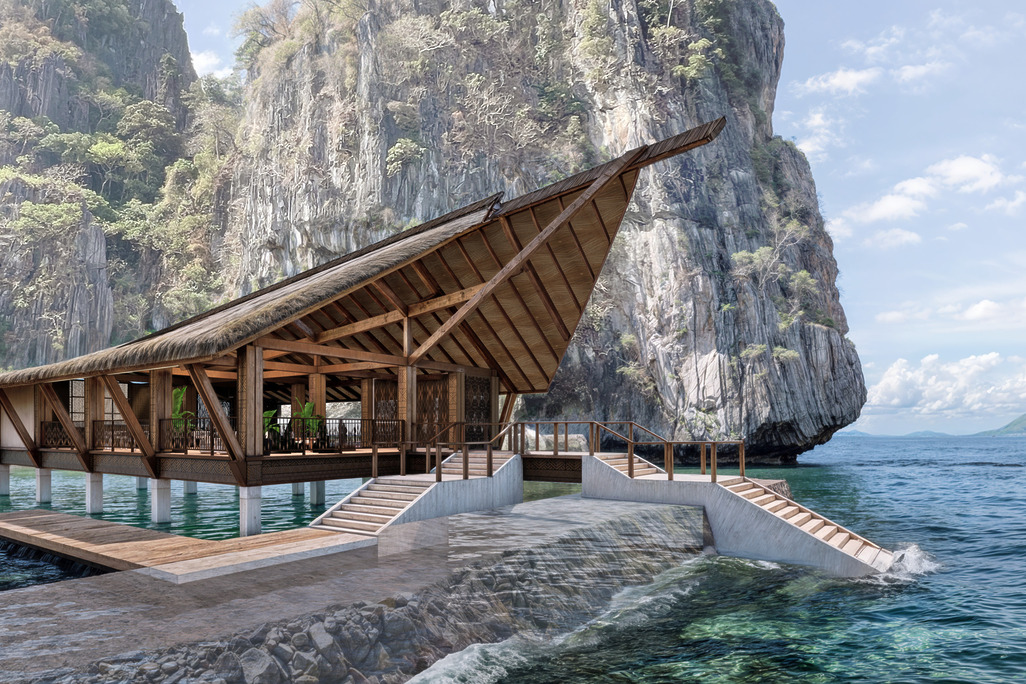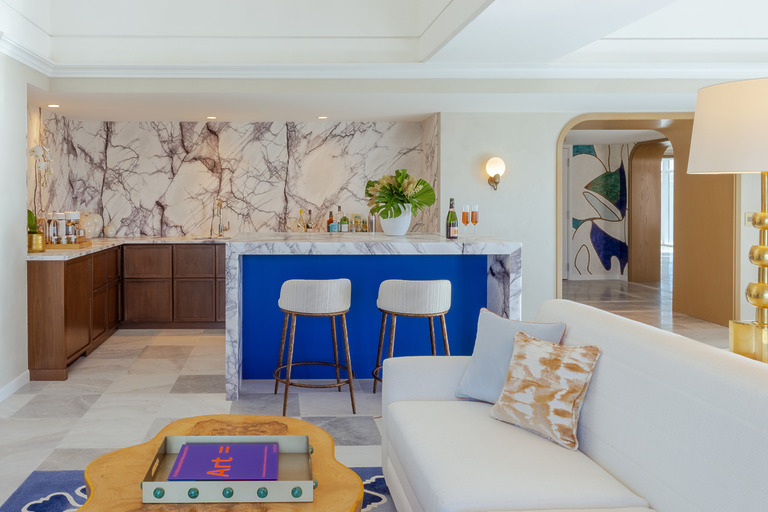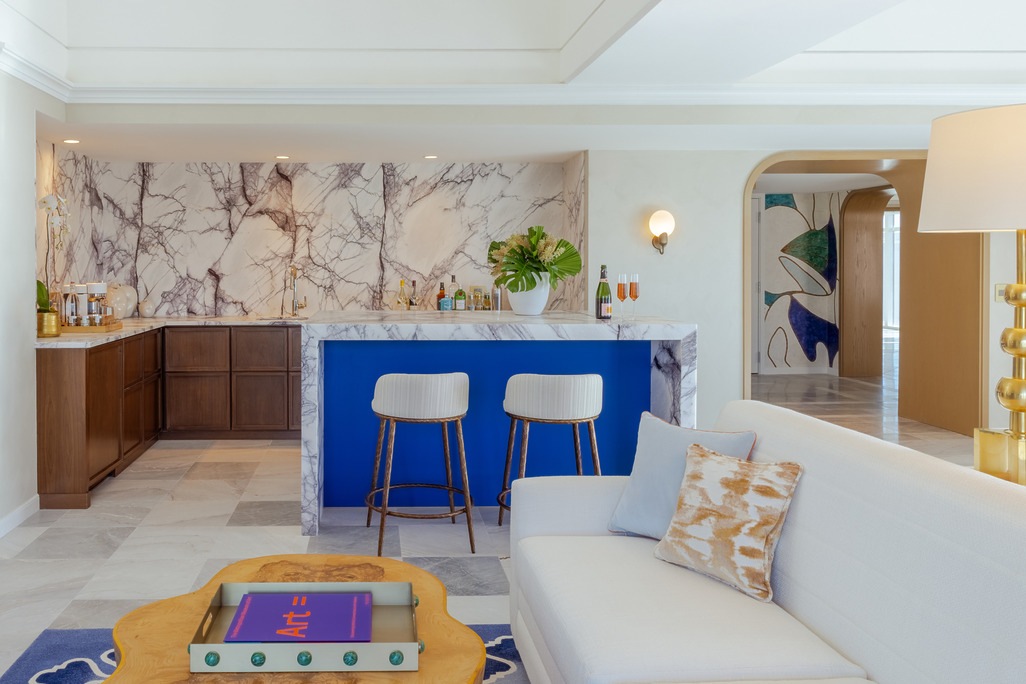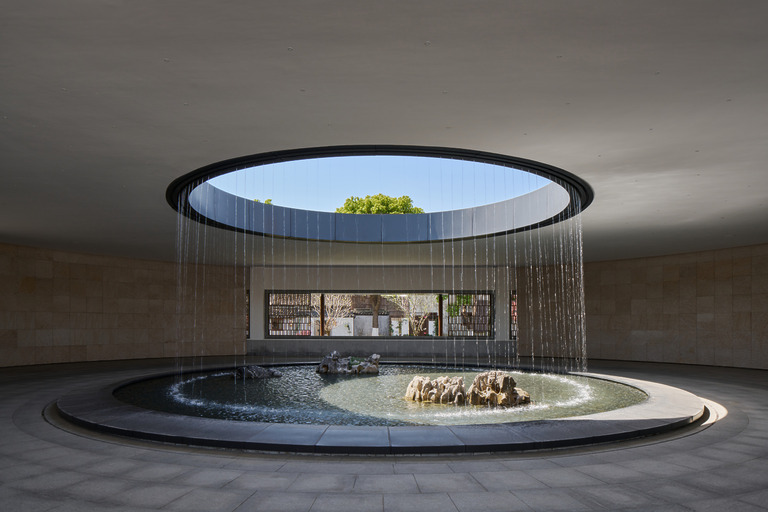
- China
A fresh new standard for experiential design in this UNESCO World Heritage-listed destination
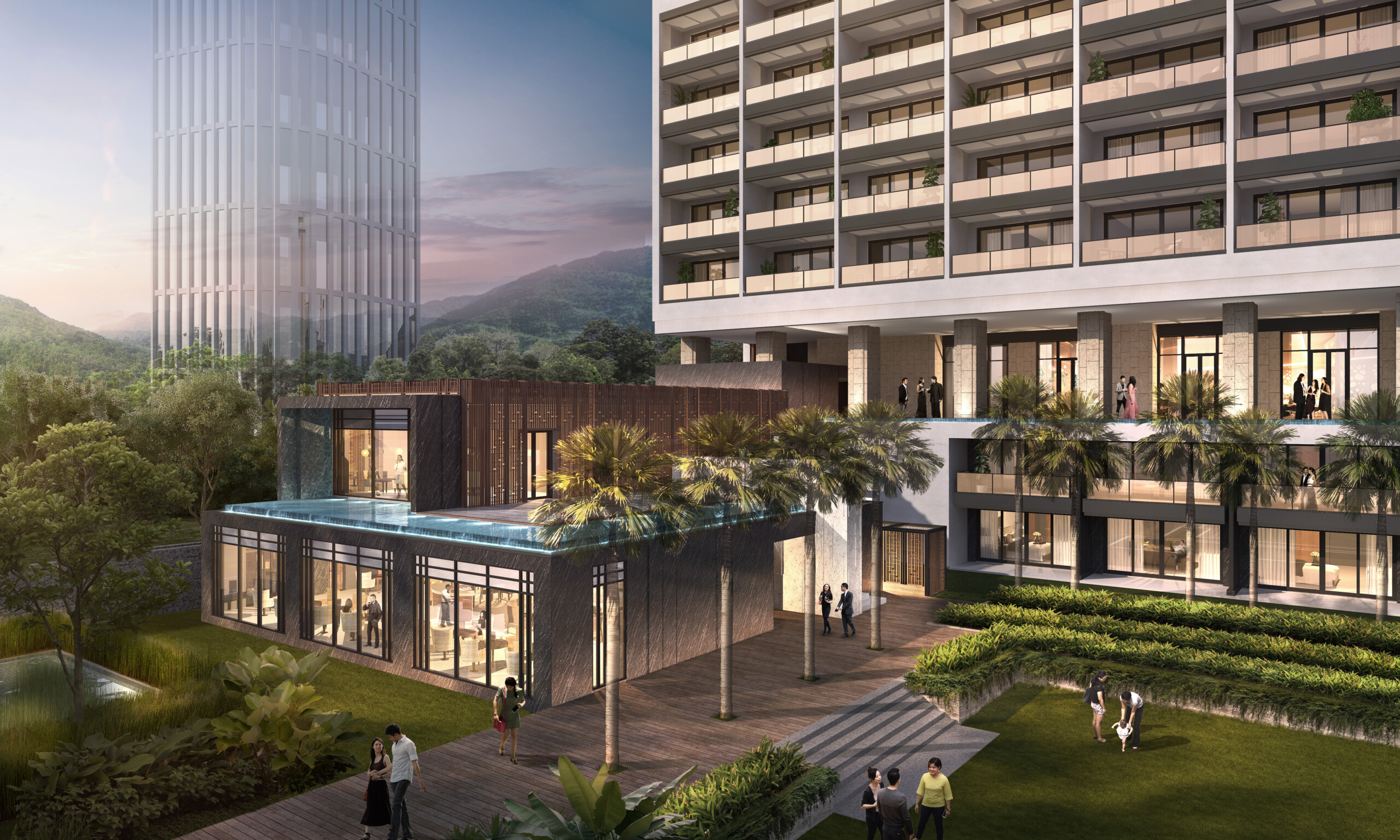
Halong Bay, Vietnam
Asia Pacific
4-hectare site; 175 guest rooms; 60 apartments; 41 villas
Architecture
In recent years, the areas in and around Halong Bay have seen tremendous change. Striking the right balance between contemporary design, environmental context and local culture, the InterContinental Halong Bay Resort and InterContinental Residences Halong Bay set a fresh and new standard for experiential design in the area, becoming the perfect setting for the internationally renowned brand’s pioneering luxury travel heritage.
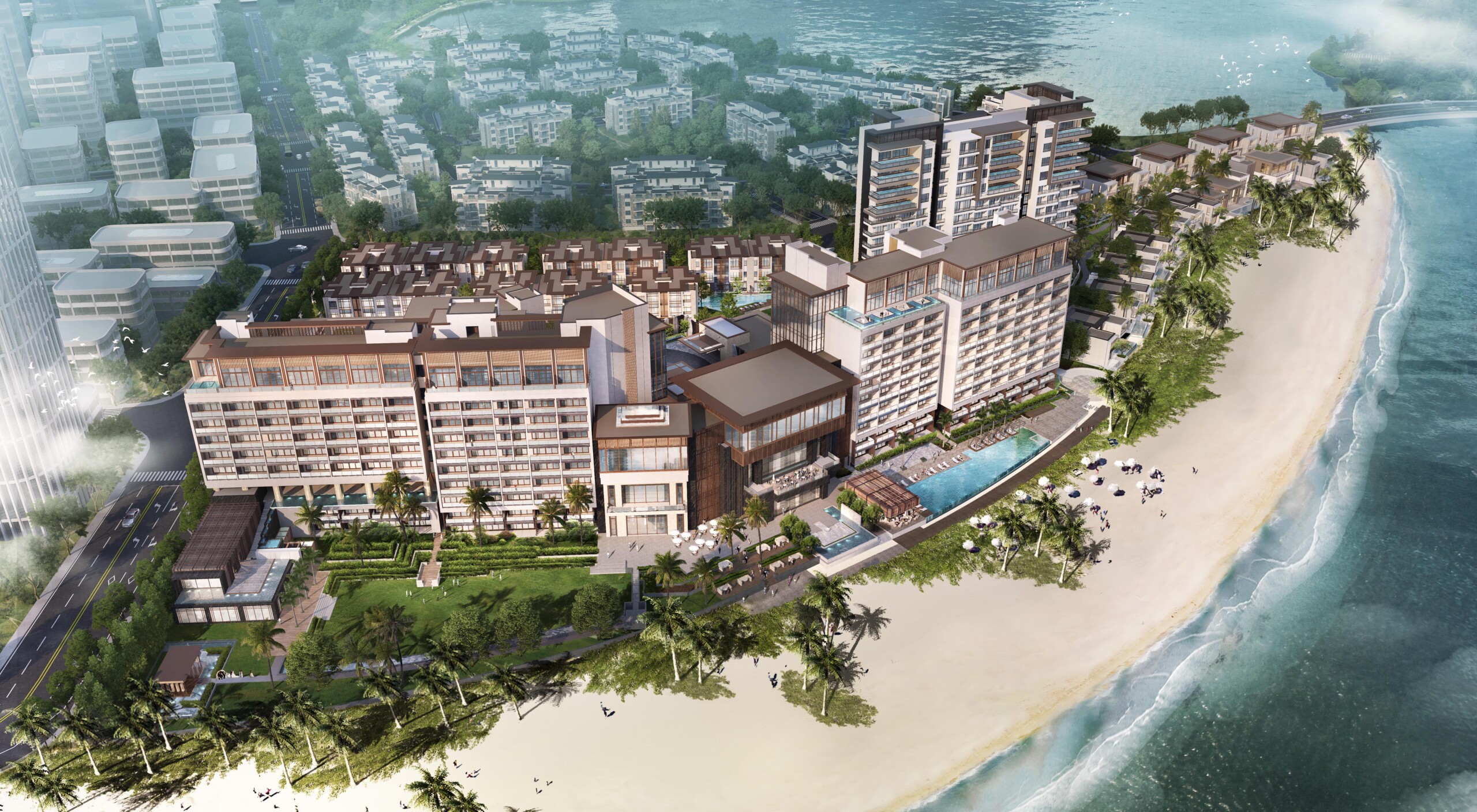
The beachfront location directly faces the UNESCO World Heritage-listed Halong Bay in northern Vietnam. The irregularly-shaped four-hectare site, located along the southern edge of a 248-hectare mixed-use development, has been meticulously master planned to fit the development program and maximize the views towards the bay.
Adhering to key site planning principles – efficient yet experiential, orientation to views, luxury, and exclusivity – the site’s relatively flat contour is sculpted to create pockets of experiential resort environments. Moving through the spaces, there is a sense of anticipation, discovery, and delight. In addition, the hotel is sited so that all the guestrooms have a clear and unobstructed view of Halong Bay.
To enhance the resort experience, vehicular access and parking are concealed with tropical landscaping. The residence villas are designed to occupy a small footprint to maximize the landscape areas while allowing unique lock-off room configurations. Taller villas are positioned along the back rows to not obstruct the views of the shorter villas. Lagoons, water features, and swimming pools help group and organize the villas and enhance a tropical resort setting.
The hotel and residences convey the vibrancy of the area and the natural appeal of Halong Bay. Large stonework that surrounds the hotel and residence tower motor courts is inspired by the local legend of Halong Bay. The sunken garden in the spa mimics one of the many hidden lagoons in the bay. The architecture weaves a narrative from ancient tales and the raw, striking backdrop of land, ocean, islands, and islets of Halong Bay.
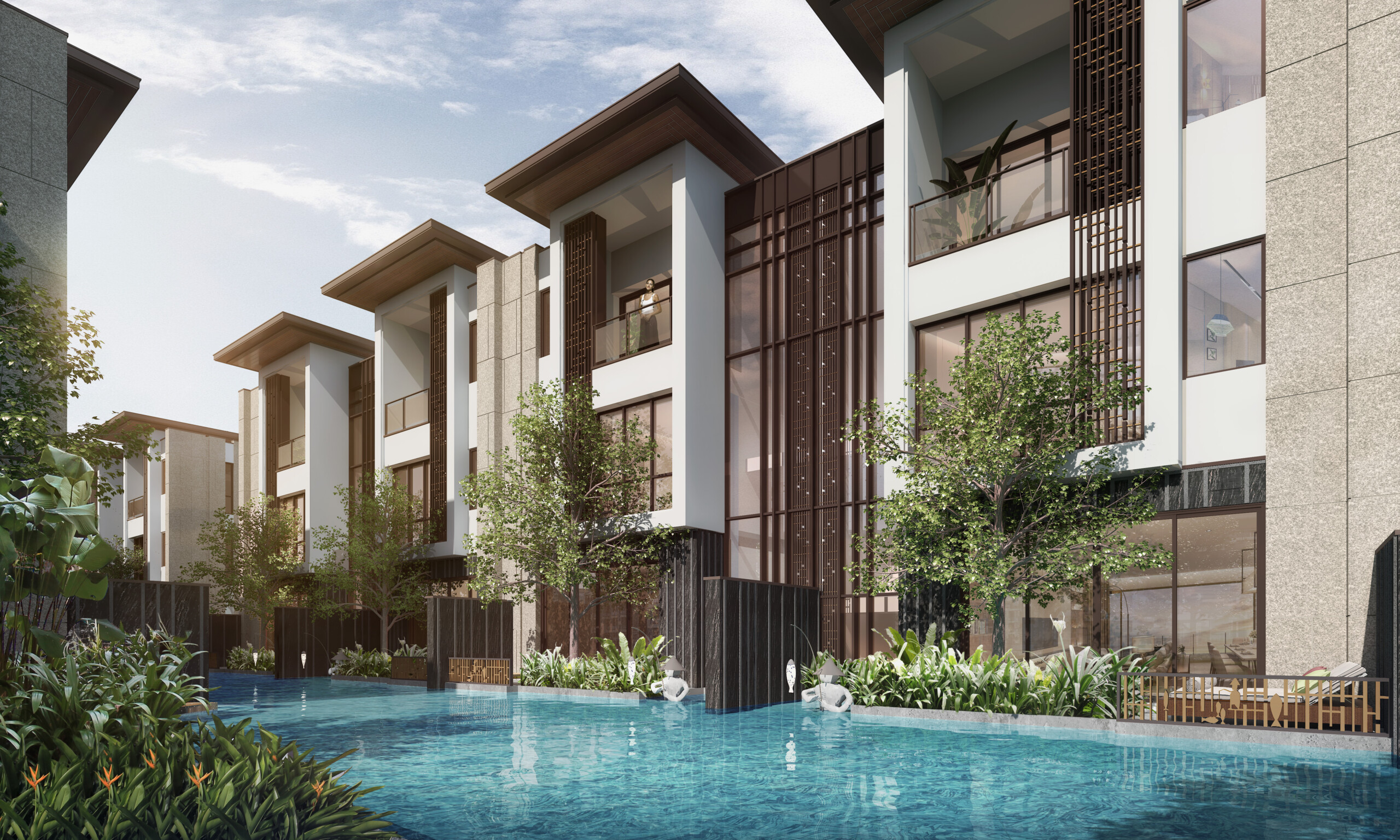
Style that is inspired by tradition and context but reimagined through a contemporary lens.
Juxtaposed with metal and glass, the stone-clad hotel and villas have a strong vertical orientation, accentuated by geometric planes, features, and lines – a nod to the islands and islets that rise majestically over the water, some with exposed, abstract stratified layers of limestone rocks. The use of stone anchors the resort’s connection with its surrounding context while at the same time, such natural material provides an effective source of insulation in reducing heating and cooling costs. Similarly, while the abundant use of glass contributes to clear and panoramic views, windows and skylights are selected with low-emissivity specifications to reduce heat gain and minimize the load on the resort’s cooling systems.
While the green roofs and lush vegetation enhance the resort nature of the development, the landscape design also improves air quality, provides habitat for birds and insects, and contributes to regulating the building temperature; thus, lowering energy costs.
Developed by BIM Group, a company committed to resource-efficient design, the project has received a preliminary EDGE certificate from SGS Vietnam. EDGE – Excellence in Design for Greater Efficiencies – is the International Finance Corporation’s (IFC) green building program.
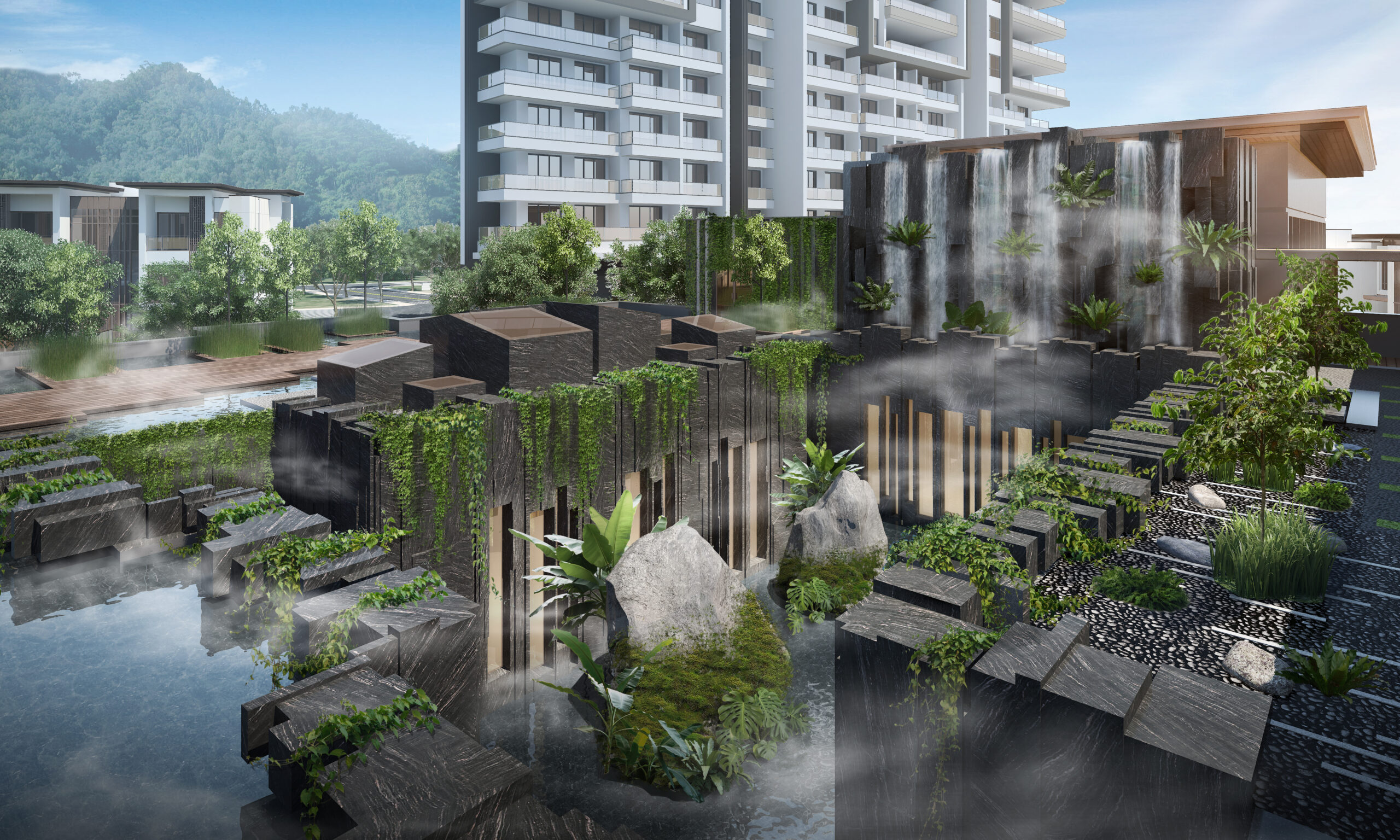
With such commitment to sustainable design, the resort is poised to stand above the competition, while attracting environmentally conscious travelers to this part of Vietnam.
As Halong Bay’s first international luxury resort, the InterContinental is already drawing wide attention and setting new standards for the region. Significantly, Vietnam is one of the world’s fastest-growing markets when it comes to branded residences; yet, the supply of this property segment is still limited.
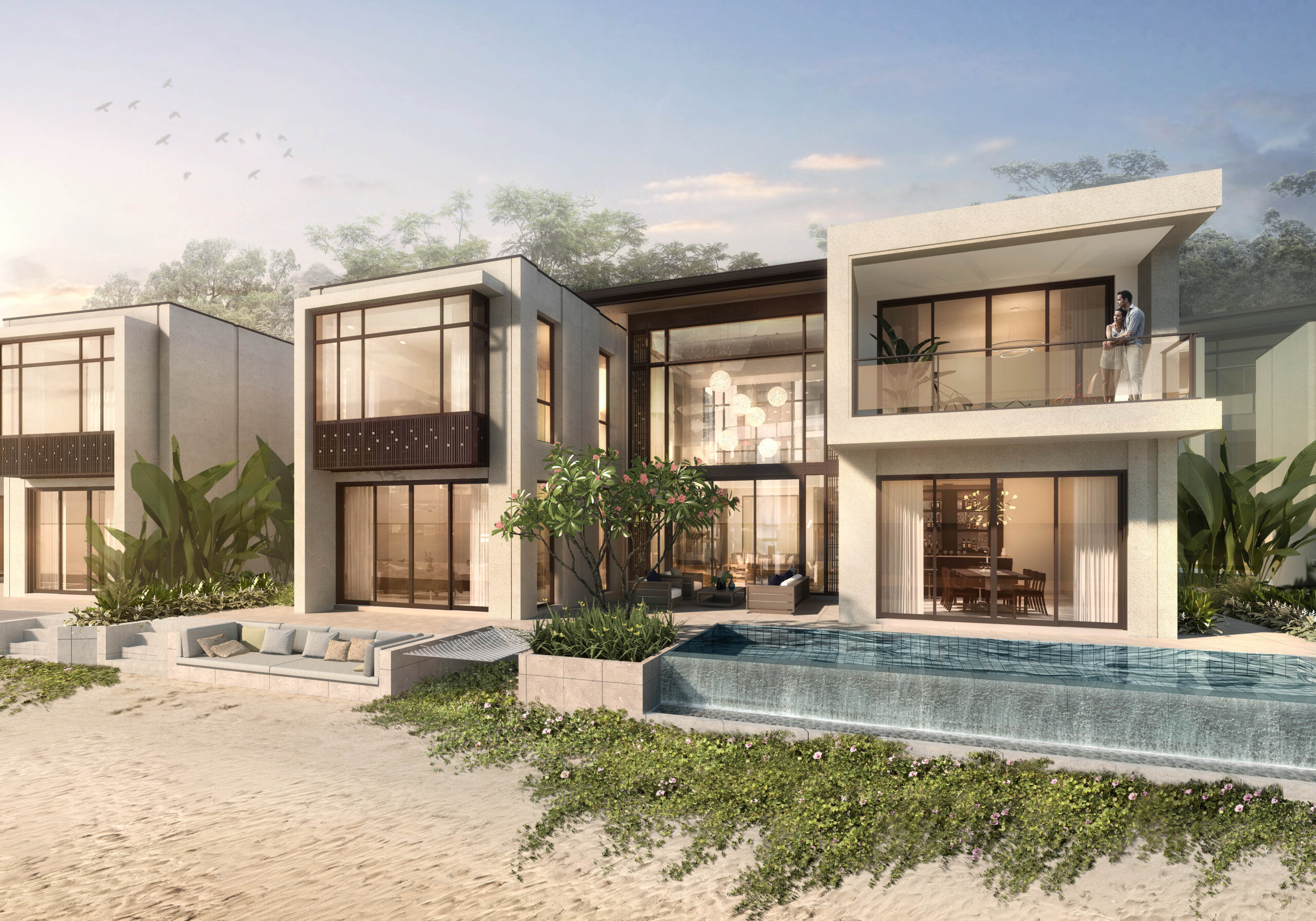
The InterContinental Residences are yielding US$ 7,700 per square meter in the branded residential market, the highest land price in Vietnam.
The resort’s location offers residents and guests an exclusive retreat with an enviable beachfront address as well as direct access to the energy and vibes of Halong Marina and Bai Chay. Its emphasis on energy efficiency also contributes to its long-term sustainability. According to the EDGE program analysis, the project is poised to save 31% in energy, 27% in water, and 30% in material energy. Furthermore, the project reduces emissions of 5,086 tons of carbon into the environment each year.
More Projects

